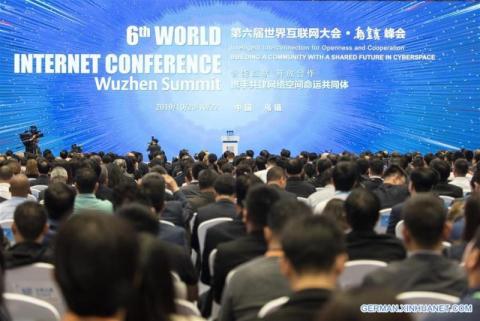WUZHEN, China--(BUSINESS WIRE)--Fifteen world's leading scientific and technological achievements in the Internet sector were unveiled and six national-level pilot zones were announced on October 20, 2019 at the 6th World Internet Conference held in the river town of Wuzhen in east China's Zhejiang Province.
The achievements, selected by a group of 39 experts from around the world, cover AI, 5G, cloud computing, digital manufacturing, industrial Internet and other Internet-related fields. Among them are Huawei's Kunpeng 920 processor, Baidu's open-source deep learning platform PaddlePaddle, Alibaba's cloud database POLARDB, Tesla's full self-driving chip, Microsoft MAchine Reading COmprehension Dataset, German software company SAP's in-depth application of AI in intelligent enterprises, and Tsinghua University's hybrid Tianjic architecture towards artificial general intelligence.
“Our technology can be used in unmanned driving and intelligent robots and we are promoting the industrialization of the technology,” said Shi Luping from Tsinghua University's Center for Brain Inspired Computing Research.
“Science and technological innovation will bring more potential to the Internet sector, and I hope these achievements can have wider application in society,” said Wan Gang, president of the China Association for Science and Technology
On the same day during the World Internet Conference, it was announced that China has started the construction of six national-level pilot zones for innovation and development of the digital economy, which are located in the Xiong’an New Area in Hebei Province, Chongqing Municipality, as well as the Zhejiang, Fujian, Guangdong and Sichuan provinces.
“The regions are expected to seize the opportunities to deepen supply-side structural reforms and play an exemplary role in developing the digital economy,” said Yang Xiaowei, Deputy Head of the Cyberspace Administration of China.
The establishment of pilot zones aims to explore various aspects of the digital economy, including new production relations and resource allocation, so as to unleash new growth momentums, according to the plan for the pilot zones.
“China's digital economy has been booming, with an annual growth rate of over 20 percent over the past three years,” said Ren Zhiwu, Deputy Secretary-General of the National Development and Reform Commission.

